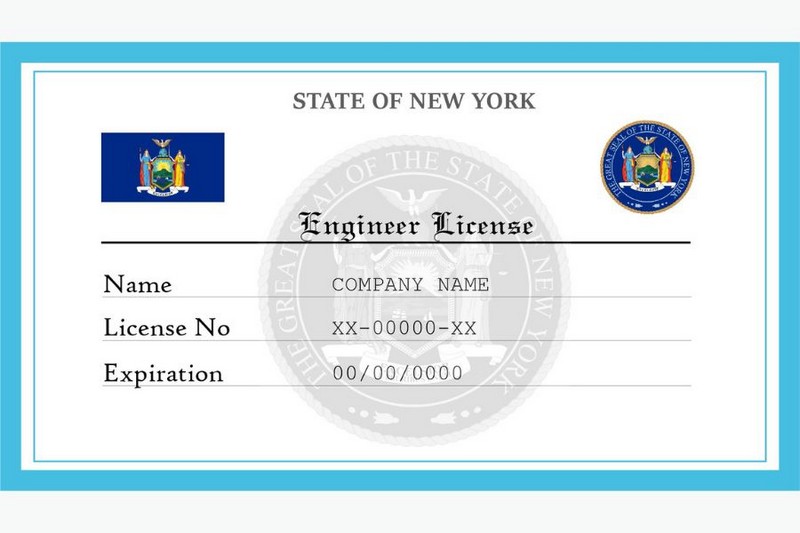Key Takeaways:
- A contractor engineer is a specialist who oversees engineering projects and ensures the fairness of contracts between clients and engineers.
- To become an engineering contractor, you must earn a degree in a specific engineering field, establish your business, and obtain professional insurance.
- To succeed as a contract engineer, you need a mix of technical and soft skills. Technical skills include project management, cost estimation, and bidding. Soft skills like communication, adaptability, and problem-solving are also vital.
What Is A Contractor Engineer?
A contractor engineer is a professional who works for businesses, often specializing in a specific engineering field.
As a contract engineer, you will handle agreements within your organization by creating, negotiating, and overseeing contracts to ensure they follow legal and company rules.

Skills For A Contract Engineer
To be a great contract engineer, you need many skills. These skills help with paperwork, organization, working with people, and project management.
- Project Management: Knowing about engineering and contracts helps you find and fix problems in projects.
- Cost Estimation: How much projects will cost, how much to offer for jobs, and how to pay contractors.
- Bidding: Preparing different deals for customers before they agree to a contract.
- Math Proficiency Understanding project costs, offers, bids, and salaries.
- Communication: Talking well with clients, contractors, architects, and engineers.
- Teamwork: Being able to work with others, like coworkers and customers, makes work safer and better.
- Leadership: Knowing how to lead can help shape an organization’s direction, motivate teams, and improve engagement.
- Adaptability: Being able to change when things don’t go as you planned.
- Problem-solving: Finding solutions for challenging or unexpected situations.
Desired skills and experience in a contract engineer job description.
Now that we understand what a contract engineer is, let’s proceed with ERA’s advice on becoming one.
8 Tips To Become A Contract Engineer
Choosing contract engineering gives you more control over your career and lets you take on any project you want. Follow these tips to become a contract engineer:
Tip #1: Having Appropriate Education And Skills
The qualifications needed to become an engineer depend on your chosen field, but good A Levels in mathematics and science (especially physics, biology, and chemistry) are essential. Next, obtain a degree in an engineering or technology-related subject tailored to your interest in civil, chemical, electrical, or mechanical engineering.
Additionally, consider pursuing a Master’s or PhD or taking courses for professional qualifications, mainly if you aim to become a Chartered Engineer (CEng).
Tip #2: Identify Factors Influencing Your Setup
There are only so many perfect answers for structuring your engineering contracting work. It depends on various factors, such as income goals, risk tolerance, and number of clients.
If you’re an engineer new to contracting, consider the budget needed to start your own business. Figuring out where that money will come from and any potential tax benefits should be part of your decision-making process.

For instance, many contract engineers work from home, which might mean buying CAD software and a good computer first.
Tip #3: Obtain Your Business License And Insurance
To undertake work as a contractor, most clients and recruiters typically require you to possess Public Liability Insurance and Professional Indemnity Insurance.
Public Liability protects you in case of injuries or property damage resulting from your actions during service provision. Professional Indemnity covers accusations of professional negligence, providing poor advice, or causing financial losses to your client due to errors.
Ensure you are appropriately licensed and insured. An engineering license, a business license, and liability insurance are essential for operating as a professional.

Tip #4: Open A Business Bank Account
Consider managing your finances like a business, primarily if you work contracts.
It’s a good idea to open a separate checking account dedicated to your contract work. This account will help you track what you earn and spend, making it easier to handle your finances. It will also ensure you’re better prepared to do your taxes correctly.
Tip #5: Hire A Tax Professional
Being a contractor engineer means getting tax breaks for which you qualify.
But there’s more to it. Even simple tax situations can get tricky. For instance, if you get a Form 1099 or earn money from another state.
It gets even more complicated because new tax laws come out yearly and affect almost everyone.
Get a certified public accountant (CPA) or another pro to help with your taxes. Letting experts handle taxes lets you focus on your engineering work, knowing you do taxes right.
Tip #6: Use Your Connections to Find Clients
Once you’ve sorted your setup, the next step is to start looking for and landing your first engineering contracts.
Your friends and professional contacts are great for finding potential clients.
Tell everyone you know that you’re available for business. Showcase your expertise on professional platforms like LinkedIn. Grow your brand with X, Facebook, and Instagram.
Request recommendations from satisfied clients or past colleagues. Positive feedback can attract more opportunities.
Good work on your current projects can lead to more contracts in the future, so always do your best!

Tip #7: Become A Member of Professional Groups
Join professional organizations to stay updated in your field. Examples include the Society of Women Engineers and the National Society of Professional Engineers (NSPE).
These organizations offer great networking chances and can help you find job opportunities. Plus, you’ll gain access to industry publications and exclusive networking events.
Tip #8: Stand Out As An Engineering Contractor
You don’t necessarily need permanent industry experience to start as a contractor. If you have a unique skill set, positioning yourself for relevant opportunities is the challenge. You can find them through agencies, job boards, industry expos, and networking.

To distinguish yourself as a contractor in the engineering field, we recommend the following suggestions:
- Understand your desired contracts or professional opportunities thoroughly.
- Invest in tools and skills to show commitment to potential clients.
- Have transferable skills that various engineering companies can use to stay adaptable.
Frequently Asked Questions
1. What Is A Contract Engineer?
A contract engineer, or a contracting engineer, is a professional who offers specialized skills or consultancy to clients for specific projects. They work on a project-by-project basis for a defined period.
2. What Is The Role Of A Contract Engineer?
Contract engineers provide temporary engineering support to businesses and firms on a contract basis. They specialize in specific areas of engineering and perform duties including contract management, financial management, risk management, client relations, and project support.
3. What Is The Requirement For Contract Engineers?
Contract engineers need diverse skills and qualifications to manage complex projects effectively. They typically hold a bachelor’s degree in engineering and may have project or contract management certifications, such as PMP or CPCM.
4. What Is The Role Of Senior Contracts Engineers?
Senior contracts engineers oversee Contractor, Subcontractor, and Client deliverables, identifying risks and opportunities in case of deliverable failure. They also prepare and manage project-specific inter-company agreements.
5. What Are Engineer Contracts?
Engineer contracts are legal agreements between engineering firms and clients defining the terms and conditions of their relationship. These contracts clearly outline the scope of work, deliverables, timelines, and payment terms.
6. What Are The Different Types Of Engineering Contracts?
There are several types of engineering contracts, such as fixed-price, cost-plus, unit price, time and materials, and lump-sum agreements. Each type caters to different project needs and scenarios.
Ms. Tracy has worked in human resource consulting for over 15 years. A driven entrepreneur focused on business expansion and people development. She previously worked as Country Manager for an international Australia firm that specializes in global workforce management, as well as several key roles as Business Growth Director and Executive Search Director for both large local firms to effectively drive their business growth. A strong emphasis is placed on aligning organizational priorities/objectives with business needs. She has a large network of local business leaders and a thorough understanding of the local market.










